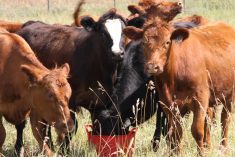The U .S.-Canadian border has become less welcoming for American horses now that the Canadian Food Inspection Agency has implemented new restrictions.
They are the result of an outbreak of equine piroplasmosis in Texas.
In an effort to stop the disease from spreading, the CFIA has asked the U.S. Department of Agriculture to temporarily modify its export regulations regarding horses and other equines travelling from or through Texas.
“The main risk factor for introducing equine piroplasmosis into Canada is through the importation of infected animals,” said CFIA media relations officer Jenn Geary.
Read Also

Organic farmers urged to make better use of trade deals
Organic growers should be singing CUSMA’s praises, according to the Canadian Chamber of Commerce.
The USDA has been asked to “suspend the issuance or endorsement of export certificates for horses and other equine originating from the state of Texas,” she said.
Canada also asked the USDA to certify that horses from other states have not been in Texas 21 days before entering Canada.
If a horse or other equine is found to have resided in or travelled through Texas, the Canada Border Service will refer it to the CFIA for a detailed health inspection.
A veterinary inspector will determine whether the animal should be allowed into Canada.
The equine piroplasmosis parasite is generally transmitted to horses through ticks or contaminated needles. Even after recovering from the disease, equines can carry the parasite in their bloodstreams and act as carriers.
While some infected equines may exhibit few or no signs of disease, others will display symptoms such as fever, anemia, weight loss or yellowish colouring of the skin, eyes and other mucous membranes.
Equine piroplasmosis is not a common disease in Canada and the United States.
An outbreak was detected Oct. 2 on a ranch in Texas, affecting 101 horses. The source has not yet been determined.














